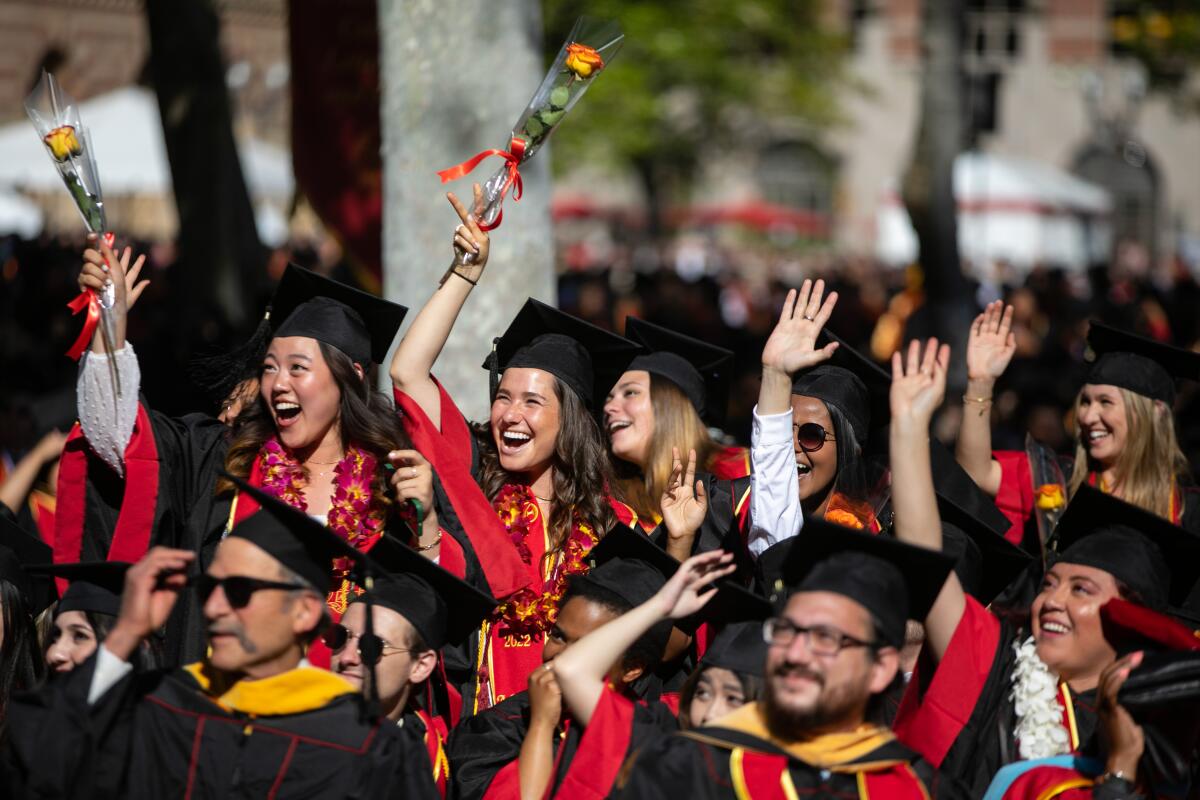Letters to the Editor: I’m 87, still working and walking proof of the value of college humanities

- Share via
To the editor: At 87 and still working, I am living proof of how an excellent education in the humanities can be the entree to just about any career. (“The demise of liberal arts? Students lose when colleges trade humanities for STEM,” editorial, Nov. 26)
I graduated from Reed College with a degree in German literature, and during my long life I have been an amateur and professional community organizer, a documents librarian, a piano teacher, an arts organizer, a specialist in Braille and tactile signage and a consultant in accessible communications in the built environment.
For 30 years, I have helped write building standards for accessible signage for the American National Standards Institute. I am a published writer in my field of accessible signage and wayfinding. I have also managed, for more than 40 years, a sign company.
I cite this long list to show the importance of an education such as the one at Reed, which certainly includes important work in science, but also exposes every student to the humanities. Because of my education there, I have never hesitated to take on a challenge.
Long live the humanities!
Sharon Toji, Irvine
..
To the editor: Yes, there is absolutely a need for liberal arts and humanities fields that emphasize critical thinking and other skills beyond those taught in the hard sciences.
The problem arises when we consider the proliferation of majors within the liberal arts curricula that are so narrowly focused that they prepare the student for little beyond what their high school education taught them.
These majors, instead of providing the broad-based areas of study intended to be a truly liberal arts education, limit the opportunities of their students after graduation.
Let’s get back to offering those majors that historically define liberal arts — history, literature, music, philosophy, psychology and so on — and make the boutique majors what they are, which is minor fields of study or graduate programs.
John Goodman, Oak Park
..
To the editor: As a member of the Teacher Advisory Council of the National Humanities Center, I congratulate you for your editorial praising the liberal arts and recognizing the role that humanities play in society.
One need look no further than the pandemic: Many of us benefited from virtual attendance at concerts, dance performances, art exhibitions and lectures while cultural venues were closed and we were sheltering in place. They provided us with examples of beauty and creativity.
Studying the liberal arts teaches us to be readers and thinkers, skills applicable to virtually every field. It need not be an either-or choice of practical job skills or liberal arts.
Rachelle Friedman, New York
..
To the editor: I applaud your editorial decrying colleges’ new emphasis on STEM courses over humanities.
Indeed, the critical thinking skills that studying the humanities imparts have served to overcome the adverse products of far-right group-think, including toxic cults, religious extremism and ultimately fascism.
We can be thankful that our country’s founders were critical thinkers. That much is evident in the Constitution’s final substantive provision, an explicit ban on imposing any “religious test” to qualify for public office.
It figures that such a ban long has been disregarded by conservatives who meddle in college curricula.
Roberta Helms, Santa Barbara



